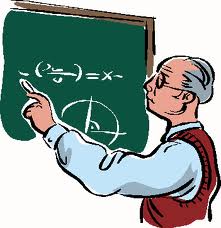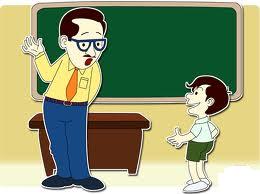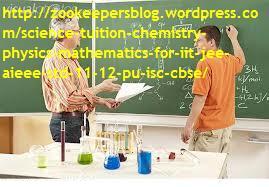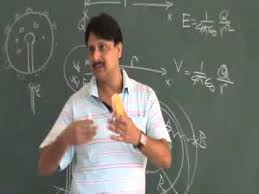Please Visit our new Website here
Learn more at http://skmclasses.weebly.com/iit-jee-home-tuitions-bangalore.html
search for videos in http://skmclasses.weebly.com
Twitter – https://twitter.com/ZookeeperPhy
Facebook – https://www.facebook.com/IIT.JEE.by.Prof.Subhashish/
Blog – http://skmclasses.kinja.com
Chemistry Physics Mathematics personal tuitions ( also Home Tuitions / Coaching by Home Tutor with personal Attention ) are available in the Bannerghatta Road IIM ( south Bangalore ) region.
Contact mokshya@gmail.com
–
Students staying in J P Nagar, Bommanahalli, Nayak Layout, Poornima Nagar, Aradhana Layout, Shreyas Colony, Devarachikkahalli, Rukmaiah Layout, Viswapriya Nagar, Akshayanagar, Omkar Nagar, BTM, Shanthiniketan Layout, Madivala, Teacher’s Colony, Hogasandra, MICO Layout, Fortis Hospital, Anjanadri Layout, Apollo Hospital, Royal Lake Front, Royal Residency, Jayanagar, Vijaya Enclave, Sundaram Shetty Nagar, Duo Heights, Arekere, Begur Road, L&T South city, Dollar colony, Brigade Millennium, Kumaraswami Layout, Jarganahalli, Bendre Nagar, Srinidhi Layout, Mysore Bank Colony, Ramaiah Garden, Nobo Nagar, Adigas Restaurant Bannerghatta Road, Shankranthi Layout, Sarvabhouma Nagar, BTS Layout, Ayyappa Temple Shoba Apartments, Anugraha Layout, Neo Layout, Mahaveer Rhyolities, Akshaya Nagar, DLF Extention, new Dollar Colony, etc can easily access this.
The schools and Institutions near by are Mitra Academy, St Pauls – Presidency School and College, Clarence High School, PSBB, Ryan International School, Sarala Birla Academy, BGS NPS,Brigade school, Shantiniketan, MG Infant, Deeksha Hosur Road, Nightingles English Highschool, Sri Venkateshwara Education Society, Oxford Engineering College, Lorven International Institute, Hill Top School, Karnataka Govt. High School, Christ Academy Hulahalli Koppa Road, Salonee School, Royal Convent School, St Francis School, Teresa Public School, Maaruthi Magnolia etc.
Must see https://zookeepersblog.wordpress.com/some-points-which-i-wish-all-my-new-prospective-students-know/
e-Book-e-Book-e-Book-e-Book-e-Book-e-Book-e-Book-e-Book–e-Book–e-Book–e-Book
Download the following FREE pdf e-Books ( Chapter wise / Topic wise solutions, Written by Prof. Subhashish Chattopadhyay SKMClasses Bangalore )
IIT-JEE, NCERT / CBSE, I.Sc., PU, Board exam, EAMCET, BITS Chemistry Books with lots of Examples ( Free pdf download of Chemistry Books, Chapter wise / Topic wise Questions and Solutions )
8 ] CBSE 12 & IIT-JEE Chemistry Survival Guide-Stoichiometry Titration by Prof. Subhashish Chattopadhyay
Description – “Spoon Feeding Stoichiometry Titration ” for IIT-JEE, I.Sc., CBSE, Karnataka PU, State Boards etc. CBSE Standard 12 and IIT-JEE Chemistry Survival Guide-Stoichiometry Titration by Prof. Subhashish Chattopadhyay SKMClasses Bangalore Useful for I.Sc. PU-II CEE IGCSE IB AP-Chemistry, CET, VIT, Manipal, SRM and other exams.
This e-Book covers several examples of Stoichiometry Titrations, Heating effects in several salts, colours or colors of the precipitates, Empirical formulae calculation, Limiting reagents, Titration examples, Equivalent weight, milli-equivalent weight, What mass or moles is reacting with how much ? How much is oxidised ? How much is Reduced ? Several Complicated examples and many more, and various incomplete dictionary kinds of collection for Course of IIT-JEE, CET, etc with CBSE, COMED-K, IIT-JEE ( Main and Advanced ) Problems and Solutions. Includes NCERT / CBSE Text Book Solutions, Chapter wise Solutions, AIEEE ( Now known as IIT-JEE main ) Solutions, Roorkey Entrance Exam Solutions, EAMCET Solutions.
CBSE 12 & IIT-JEE Chem Survival Guide-Stoichiometry Titration by Prof. Subhashish
:-{D
7 ] CBSE 12 & IIT-JEE Chemistry Survival Guide-Redox Reactions by Prof. Subhashish Chattopadhyay
Description – “Spoon Feeding Redox Reactions ” for IIT-JEE, I.Sc., CBSE, Karnataka PU, State Boards etc. CBSE Standard 12 and IIT-JEE Chemistry Survival Guide-Redox Reactions by Prof. Subhashish Chattopadhyay SKMClasses Bangalore Useful for I.Sc. PU-II CEE COMED-K IGCSE IB AP-Chemistry, CET, VIT, Manipal, SRM and other exams.
This e-Book covers more than 60 examples of Redox Reactions, Several Complicated examples and many more, and various incomplete dictionary kinds of collection for Course of IIT-JEE, CET, etc with CBSE, COMED-K, IIT-JEE ( Main and Advanced ) Problems and Solutions. Includes NCERT / CBSE Text Book Solutions, Chapter wise Solutions, AIEEE ( Now known as IIT-JEE main ) Solutions, Roorkey Entrance Exam Solutions, EAMCET Solutions.
CBSE 12 & IIT-JEE Chem Survival Guide-Redox Reactions by Prof. Subhashish
:-{D
6 ] CBSE 12 & IIT-JEE Chemistry Survival Guide-Electrochemistry by Prof. Subhashish Chattopadhyay
Description – “Spoon Feeding Electrochemistry ” for IIT-JEE, I.Sc., CBSE, Karnataka PU, State Boards etc. CBSE Standard 12 and IIT-JEE Chemistry Survival Guide-Electrochemistry by Prof. Subhashish Chattopadhyay SKMClasses Bangalore Useful for I.Sc. PU-II CEE IGCSE IB AP-Chemistry, CET, VIT, Manipal, SRM and other exams.
This e-Book covers Electrochemistry, Oxidation Potential, Reduction Potential, Electrode Potential, Reactivity Series, Battery, Nernst Equation, Variation of Voltage with concentration, Electrolyte, Electrolysis, Salt Bridge, Daniel Cell, Primary Cell, Secondary Cell, Galvanic Cell, Electrolytic Cell, Conductivity, Kohlrausch’s Law and many more, and various incomplete dictionary kinds of collection for Course of IIT-JEE, CET, etc with CBSE, COMED-K, IIT-JEE ( Main and Advanced ) Problems and Solutions. Includes NCERT / CBSE Text Book Solutions, Chapter wise Solutions, AIEEE ( Now known as IIT-JEE main ) Solutions, Roorkey Entrance Exam Solutions, EAMCET Solutions.
CBSE 12 & IIT-JEE Chem Survival Guide-ElectroChemistry by Prof. Subhashish
:-{D
5 ] CBSE 12 & IIT-JEE Organic Chemistry Survival Guide-Reduction Methods by Prof. Subhashish Chattopadhyay
Description – “Spoon Feeding Reduction Methods ” for IIT-JEE, I.Sc., CBSE, Karnataka PU, State Boards etc. CBSE Standard 12 and IIT-JEE Organic Chemistry Survival Guide-Reduction Methods by Prof. Subhashish Chattopadhyay SKMClasses Bangalore Useful for I.Sc. PU-II CEE COMED-K IGCSE IB AP-Chemistry, CET, VIT, Manipal, SRM and other exams.
This e-Book covers Various kinds of Reduction Methods in Organic Chemistry. Covers Gilmann’s Reagent, Grignard Reagent, Trimethyl Silyl Iodide, Silyl Wittig Reaction, Hydrogen with Ni, Zn, Pd Palladium, Bakers Yeast, Wolf Kishner, Wilkinson’s Catalyst, Birch Reduction, Lindlar’s Catalyst, Benkeser Reduction, Reduction with HCO2H, Sodium Boro Hydride NaBH4, Veils Meier Reaction, Luche’s Reagent, Super Hydride, Sodium Cyno boro hydride, Dibal H, Adams Catalyst, Rosen Mund Reduction, Various Lithium Aluminium Hydrides, NaNH2, and many more, and various incomplete dictionary kinds of collection for Course of IIT-JEE, CET, etc with CBSE, COMED-K, IIT-JEE ( Main and Advanced ) Problems and Solutions. Includes NCERT / CBSE Text Book Solutions, Chapter wise Solutions, AIEEE ( Now known as IIT-JEE main ) Solutions, Roorkey Entrance Exam Solutions, EAMCET Solutions.
CBSE 12 & IIT-JEE Organic Chem Survival Guide-Reduction methods by Prof. Subhashish
:-{D
4 ] CBSE 12 & IIT-JEE Organic Chemistry Survival Guide-Oxidation Methods by Prof. Subhashish Chattopadhyay
Description – “Spoon Feeding Oxidation Methods ” for IIT-JEE, I.Sc., CBSE, Karnataka PU, State Boards etc. CBSE Standard 12 and IIT-JEE Organic Chemistry Survival Guide-Oxidation Methods by Prof. Subhashish Chattopadhyay SKMClasses Bangalore Useful for I.Sc. PU-II CEE COMED-K IGCSE IB AP-Chemistry, CET, VIT, Manipal, SRM and other exams.
This e-Book covers Various kinds of Oxidation Methods in Organic Chemistry. Covers Sarett’s Reagent, PCC, Chromium Oxide, Osmium Oxide, Manganese Oxide, Silver oxides, Ruthenuim Oxide, Hydrogen Peroxide, Selenium dioxide, KMnO4, Jones, Julia Colonna, DCC, Corey’s, Moffats, Ley Oxidation, MPV, Fetizon, Frmy’s Salt, Elbs Persulphate Oxidation, Sodiumperiodate, Palladium Chloride, Copper Chloride, Sharpless epoxidation, and many more, and various incomplete dictionary kinds of collection for Course of IIT-JEE, CET, etc with CBSE, COMED-K, IIT-JEE ( Main and Advanced ) Problems and Solutions.Includes NCERT / CBSE Text Book Solutions, Chapter wise Solutions, AIEEE ( Now known as IIT-JEE main ) Solutions, Roorkey Entrance Exam Solutions, EAMCET Solutions.
CBSE 12 & IIT-JEE Organic Chem Survival Guide-Oxidation methods by Prof. Subhashish
:-{D
3 ] CBSE 12 & IIT-JEE Chem Survival Guide-Bonds & Structure by Prof. Subhashish Chattopadhyay
Description – “Spoon Feeding Bonds & Structures ” for IIT-JEE, I.Sc., CBSE, Karnataka PU, State Boards etc. CBSE Standard 12 and IIT-JEE Chem Survival Guide-Bonds & Structures by Prof. Subhashish Chattopadhyay SKMClasses Bangalore Useful for I.Sc. PU-II CEE COMED-K IGCSE IB AP-Chemistry, CET, VIT, Manipal, SRM and other exams.
This e-Book covers Various kinds of Bonds and Structures in Chemistry. Covers Sigma, Pi, Delta, Back Bonding, Coordinate or Dative Bond, Eta Bond, Hydrogen Bond, London forces, and many more, and various incomplete dictionary kinds of collection for Course of IIT-JEE, CET, etc with CBSE, COMED-K, IIT-JEE ( Main and Advanced ) Problems and Solutions.Includes NCERT / CBSE Text Book Solutions, Chapter wise Solutions, AIEEE ( Now known as IIT-JEE main ) Solutions, Roorkey Entrance Exam Solutions, EAMCET Solutions.
CBSE 12 & IIT-JEE Chem Survival Guide-Bonds & Structure by Prof. Subhashish
:-{D
2 ] CBSE 12 & IIT-JEE Chem Survival Guide-Elements & Properties by Prof. Subhashish Chattopadhyay
Description – “Spoon Feeding Elements & Properties ” for IIT-JEE, I.Sc., CBSE, Karnataka PU, State Boards etc. CBSE Standard 12 and IIT-JEE Chem Survival Guide-Elements & Properties by Prof. Subhashish Chattopadhyay SKMClasses Bangalore Useful for I.Sc. PU-II CEE COMED-K IGCSE IB AP-Chemistry, CET, VIT, Manipal, SRM and other exams.
This e-Book covers Elements & Their Properties in Chemistry. Covers the discoveries by spectral Analysis, Named after smell, places, people etc. Various compounds, tests, properties, and various incomplete dictionary kinds of collection for Course of IIT-JEE, CET, etc with CBSE, COMED-K, IIT-JEE ( Main and Advanced ) Problems and Solutions.Includes NCERT / CBSE Text Book Solutions, Chapter wise Solutions, AIEEE ( Now known as IIT-JEE main ) Solutions, Roorkey Entrance Exam Solutions, EAMCET Solutions.
CBSE 12 & IIT-JEE Chem Survival Guide-Elements & Properties by Prof. Subhashish
:-{D
1 ] CBSE 12 & IIT-JEE Chem Survival Guide-Empirical Formulae by Prof. Subhashish Chattopadhyay
Description – “Spoon Feeding Empirical Formulae ” for IIT-JEE, I.Sc., CBSE, Karnataka PU, State Boards etc. CBSE Standard 12 and IIT-JEE Chem Survival Guide-Empirical Formulae by Prof. Subhashish Chattopadhyay SKMClasses Bangalore Useful for I.Sc. PU-II CEE COMED-K IGCSE IB AP-Chemistry, CET, VIT, Manipal, SRM and other exams.
This e-Book covers various kinds of Empirical Equations in Chemistry. These equations are formed by experiments, and graph plotting. In some rare cases the Theory was developed later. Covers Slater’s rule, Shielding, Finding Electronegativity values by Allred and Rochow’s empirical formula, Moseley’s Law, Trouton’s law, Einstein-Debey equation (Dulong & Petit), Reynolds number, Raoult’s law, Variation of viscosity with temperature, Arrhenius model, Williams-Landel-Ferry model, Masuko and Magill model, Walther formula, Wright model, Seeton model, Variation of surface tension with temperature, Eotvos equation, Guggenheim-Katayama equation, Debye-Huckel-Onsager theory of conductivity of ions in dilute solutions, Liquid drop model of Nucleus, Nuclear Shell Model, Ionic character percentage of a diatomic molecule, and various incomplete dictionary kinds of collection for Course of IIT-JEE, CET, etc with CBSE, COMED-K, IIT-JEE ( Main and Advanced ) Problems and Solutions.Includes NCERT / CBSE Text Book Solutions, Chapter wise Solutions, AIEEE ( Now known as IIT-JEE main ) Solutions, Roorkey Entrance Exam Solutions, EAMCET Solutions.
CBSE 12 & IIT-JEE Chem Survival Guide-Empirical Formulae by Prof. Subhashish
:-{D
IIT-JEE, NCERT / CBSE, I.Sc., PU, Board exam, EAMCET, BITS Math Books with lots of Questions and Solutions, Examples ( Free pdf download of Math Books, Chapter wise / Topic wise Solutions )
6 ] CBSE 12 & IIT-JEE Math Survival Guide-Relations and Functions by Prof. Subhashish Chattopadhyay
Description – “Spoon Feeding Relations & Functions” for IIT-JEE, I.Sc. , CBSE, Karnataka PU, State Boards etc. CBSE Standard 12 Math Survival Guide-Relations and Functions by Prof. Subhashish Chattopadhyay SKMClasses Bangalore Useful for I.Sc. PU-II CET CEE COMED-K IGCSE IB AP-Mathematics and other exams.
This e-Book covers Relations and Functions with lots of Video explanations. The classroom teaching videos can be seen by clicking on the given links. The videos can be downloaded also. Hundreds of tricky problems solved. Rules / Tricks / Properties of Relations and Functions, with CBSE, COMED-K, IIT-JEE ( Main and Advanced ) Problems and Solutions. Includes NCERT / CBSE Text Book Solutions, Chapter wise Solutions, AIEEE ( Now known as IIT-JEE main ) Solutions, Roorkey Entrance Exam Solutions, EAMCET Solutions. R D Sharma Solutions, R S Aggarwal’s Solutions.
CBSE 12 & IIT-JEE Math Survival Guide-Relations & Functions by Prof. Subhashish
:-{D
5 ] CBSE 12 & IIT-JEE Math Survival Guide-Graphs and Functions by Prof. Subhashish Chattopadhyay
Description – “Spoon Feeding Graphs & Functions” for IIT-JEE, I.Sc. , CBSE, Karnataka PU, State Boards etc. CBSE Standard 12 Math Survival Guide-Graphs and Functions by Prof. Subhashish Chattopadhyay SKMClasses Bangalore Useful for I.Sc. PU-II CET CEE COMED-K IGCSE IB AP-Mathematics and other exams.
This e-Book covers Graphs and Functions with lots of Video explanations. The classroom teaching videos can be seen by clicking on the given links. The videos can be downloaded also. Hundreds of tricky problems solved. Rules / Tricks / Properties of Graphs and Functions, with CBSE, COMED-K, IIT-JEE ( Main and Advanced ) Problems and Solutions. Includes NCERT / CBSE Text Book Solutions, Chapter wise Solutions, AIEEE ( Now known as IIT-JEE main ) Solutions, Roorkey Entrance Exam Solutions, EAMCET Solutions. R D Sharma Solutions, R S Aggarwal’s Solutions.
CBSE 12 & IIT-JEE Math Survival Guide-Functions & Graphs by Prof. Subhashish
:-{D
4 ] CBSE 12 & IIT-JEE Math Survival Guide-Indefinite Integrals by Prof. Subhashish Chattopadhyay
Description – “Spoon Feeding Indefinite Integrals & Calculus” for IIT-JEE, I.Sc. , CBSE, Karnataka PU, State Boards etc. CBSE Standard 12 Math Survival Guide-Indefinite Integrals by Prof. Subhashish Chattopadhyay SKMClasses Bangalore Useful for I.Sc. PU-II CET CEE IGCSE IB AP-Mathematics and other exams.
This e-Book covers Indefinite Integrals with lots of Video explanations. The classroom teaching videos can be seen by clicking on the given links. The videos can be downloaded also. Hundreds of tricky problems solved. Rules / Tricks / Properties of Indefinite Integrals, with CBSE, COMED-K, IIT-JEE ( Main and Advanced ) Problems and Solutions. Includes NCERT / CBSE Text Book Solutions, Chapter wise Solutions, AIEEE ( Now known as IIT-JEE main ) Solutions, Roorkey Entrance Exam Solutions, EAMCET Solutions. R D Sharma Solutions, R S Aggarwal’s Solutions.
CBSE 12 & IIT-JEE Math Survival Guide-Indefinite Integrals by Prof. Subhashish
:-{D
3 ] CBSE 12 & IIT-JEE Math Survival Guide-Area & Volume by Prof. Subhashish Chattopadhyay
Description – “Spoon Feeding Area and Volume ” for IIT-JEE, I.Sc. , CBSE, Karnataka PU, State Boards etc. CBSE Standard 12 and IIT-JEE Math Survival Guide-Area and Volume by Prof. Subhashish Chattopadhyay SKMClasses Bangalore Useful for I.Sc. PU-II CET CEE IGCSE IB AP-Mathematics and other exams.
This e-Book covers various kinds of graphs, such as graph of Ln x, ( ln x )/x, x Ln x, floor x [ x ] , Shifting of graphs, roots of Quadratic, cubic, and other higher powers of x ( polynomials ), asymptotes, ( How to find Asymptotes ) etc. Volume by revolution and hundreds of Area problems of IIT-JEE, CET, etc with CBSE, COMED-K, IIT-JEE ( Main and Advanced ) Problems and Solutions.Includes NCERT / CBSE Text Book Solutions, Chapter wise Solutions, AIEEE ( Now known as IIT-JEE main ) Solutions, Roorkey Entrance Exam Solutions, EAMCET Solutions. R D Sharma Solutions, R S Aggarwal’s Solutions.
CBSE 12 & IIT-JEE Math Survival Guide-Area & Volume by Prof. Subhashish
:-{D
2 ] CBSE 12 & IIT-JEE Math Survival Guide-Definite Integrals by Prof. Subhashish Chattopadhyay
Description – “Spoon Feeding Definite Integrals ” for IIT-JEE, I.Sc. , CBSE, Karnataka PU, State Boards etc. CBSE Standard 12 Math Survival Guide-Definite Integrals by Prof. Subhashish Chattopadhyay SKMClasses Bangalore Useful for I.Sc. PU-II CET CEE IGCSE IB AP-Mathematics and other exams.
CBSE 12 & IIT-JEE Math Survival Guide-Definite Integrals by Prof. Subhashish
This e-Book covers Definite Integrals with [ x ] greatest integer functions, { x } fraction function, Max and Min functions. Gamma function, Beta function, Integration after converting to Complex number, Leibnitz forms of Differentiating Integrals, L Hospital’s rule applied to limits with Integrals, Inequalities of Integrals, Rules / Tricks / Properties of Definite Integrals, with CBSE, COMED-K, IIT-JEE ( Main and Advanced ) Problems and Solutions.Includes NCERT / CBSE Text Book Solutions, Chapter wise Solutions, AIEEE ( Now known as IIT-JEE main ) Solutions, Roorkey Entrance Exam Solutions, EAMCET Solutions. R D Sharma Solutions, R S Aggarwal’s Solutions.
:-{D
1 ] CBSE 12 Math Survival Guide-Differential Equations by Prof. Subhashish Chattopadhyay
Description – “Spoon Feeding Differential Equations ” for IIT-JEE, I.Sc. , CBSE, Karnataka PU, State Boards etc. CBSE Standard 12 Math Survival Guide-Differential Equations by Prof. Subhashish Chattopadhyay SKMClasses Bangalore Useful for I.Sc. PU-II CET CEE IGCSE IB AP-Mathematics and other exams.
CBSE 12 & IIT-JEE Math Survival Guide-Differential Equations by Prof. Subhashish
This e-Book covers all kinds of Differential equations, and methods to solve them. There is a priority checklist for the approach to be taken for solving the problems. Covers ISc, CBSE, COMED-K IIT-JEE problems, Linear, Homogeneous, Variable separable by substitution, Exact, Reducible to exact, Bernoulli, Integrating Factors or Multiplying Factors, even Clairaut’s Differential Equations ( IIT-JEE 1999, Bihar CEE 1999 ). Includes NCERT / CBSE Text Book Solutions, Chapter wise Solutions, AIEEE ( Now known as IIT-JEE main ) Solutions, Roorkey Entrance Exam Solutions, EAMCET Solutions. R D Sharma Solutions, R S Aggarwal’s Solutions.
:-{D
https://zookeepersblog.wordpress.com/some-points-which-i-wish-all-my-new-prospective-students-know/
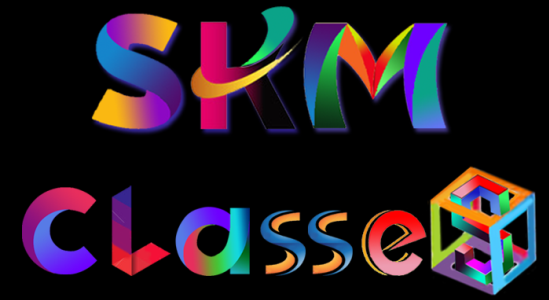
Many more free pdf e-Books are available at ( such as H C Verma Concepts of Physics Solutions, Arihant Books, free download eBooks for IIT JEE guides, AIEEE IIT JEE advanced Chapter wise solutions, preparation materials )
1 ] A Guide Book to Mechanism in Organic Chemistry by Peter Sykes
A_GUIDE_BOOK_TO_MECHANISM_IN_ORGANIC_CHEMISTRY
2 ] Nomenclature of Inorganic Chemistry – IUPAC Recommendations 2005
Nomenclature of Inorganic Chemistry – IUPAC Recommendations 2005
3 ] Linear Algebra For Dummies
4 ] Calculus Workbook For Dummies
5 ] Differential Equations For Dummies
Differential_Equations_For_Dummies
6 ] Linear Algebra by Jim Hefferon
7 ] Mathematics – Puzzles from around the world
Mathematics—Puzzles-from-around-the-world
8 ] Graph Theory by Reinhard Diestel
9 ] Electronics for Dummies
10 ] Electronics Projects for Dummies
Electronics Projects For Dummies
11 ] Physics For Dummies
12 ] Physics Workbook For Dummies
13 ] Inorganic Chemistry James E. House
Inorganic Chemistry James E. House
14 ] Inorganic Chemistry by Cox
15 ] Inorganic Chemistry 5th Edition Miessler
Inorganic Chemistry 5th Edition Miessler
16 ] Fundamentals of Organic Chemistry Solomon
Fundamentals of Organic Chemistry Solomon
17 ] Illustrated Guide to Home Chemistry Experiments
Illustrated Guide to Home Chemistry Experiments
:-{D
e-Book-e-Book-e-Book-e-Book-e-Book-e-Book-e-Book-e-Book-e-Book-e-Book–e-Book
If you want to sell your House, why do you have to pay 2% to a Broker or to a website ?
You can advertise for free to sell your House at free4u.info
Professor Subhashish Chattopadhyay is providing a Social Service for all in Bangalore, to advertise for Free
If you want to sell your Car, why do you have to pay 2% to a Broker or to a website ?
You can advertise for free to sell your Car at free4u.info
Professor Subhashish Chattopadhyay is providing a Social Service for all in Bangalore, to advertise for Free
If you are looking for Organ Donation, where do you ask ? Where do you want to put up your requirements ? Do you give costly ads ?
You can advertise or Post Classifieds for free at free4u.info
Professor Subhashish Chattopadhyay is providing a Social Service for all in Bangalore, to advertise for Free. Post all kinds of Classified ads and Requirements for FREE.
If you are a Tutor, or a Shopkeeper, or a Teacher, or a Cook, or a Gardener, or a Dog Trainer ….. or something something something….. How can you afford costly ads ? Post your requirements for free at free4u.info Advertise yourself free at free4u.info Doing a garage sell …. Tell all for free at free4u.info
Looking for a Nanny ? You can get Nannys in free4u.info
Nannys looking for jobs ? Want children to take care ? You get the child and Parents in free4u.info
Professor Subhashish Chattopadhyay is providing a Social Service for all in Bangalore, to advertise for Free. Post all kinds of Classified ads and Requirements for FREE. Following Categories and Subcategories will surely help you. This is not an exhaustive list. You can give general requirements as well. Post all your skills. Post all your needs. Looking for a job ? You can post your profile as well.
Some call this as ” Yellow Pages “. free4u.info
Some call this a FREE listing sites free4u.info
–
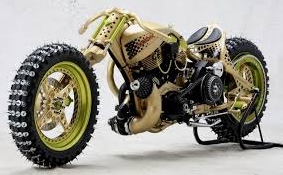

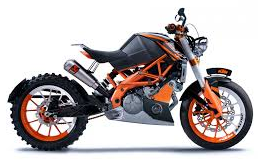
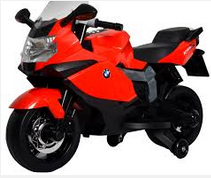
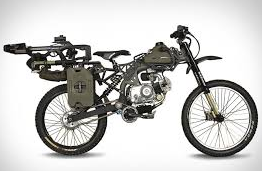
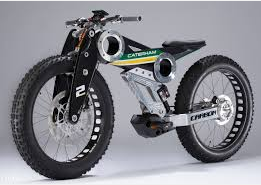

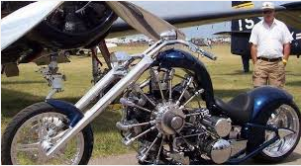
Bike ( Want to sell your Bike ? Want a Buyer ? Advertise for free at free4u.info )
Passion for work ! Learn from Vincent Van Gogh
In November 1885, Vincent Van Gogh moved to Antwerp and rented a small room above a paint dealer’s shop in the Rue des Images. He had little money and ate poorly. His brother Theodorus whom Vincent used to refer as “Theo”, used to send money. Vincent preferred to spend the money Theo sent, on painting materials and models. Surviving just on Bread, coffee and tobacco.
In February 1886, he wrote to Theo saying that he could only remember eating six hot meals since May of the previous year. Vincent’s teeth had become loose and painful. Vincent van Gogh wrote over 800 letters in his lifetime to family and friends.
Self portraits of Peter Paul Rubens inspired him to draw self portraits.
Vincent once said he will rather paint peoples eyes rather than cathedrals ! He had great emotional honesty.
While in Antwerp Vincent studied color theory and spent time in museums, particularly studying the work of Peter Paul Rubens, gaining encouragement to broaden his palette to carmine, cobalt and emerald green. He bought a number of Japanese Ukiyo-e woodcuts in the docklands, and incorporated their style into the background of a number of his paintings. He experimented with many new kinds of colours, many new kinds of techniques and approaches.
Vincent Willem van Gogh was born 30 March 1853 in Groot-Zundert, a village close to Breda in the province of North Brabant in the south of the Netherlands and died of a Gun shot 29 July 1890 just at age of 37. Though no Gun was ever found at site, it is generally believed that Vincent shot himself.
In just over a decade of painting, Vincent produced more than 2,100 artworks, consisting of 860 oil paintings and more than 1,300 watercolors, drawings, sketches and prints. His work included self portraits, landscapes, still lives, portraits and paintings of cypresses, wheat fields, Potato eaters and sunflowers. He had 3 sister named Wilhelmina, Elisabeth and Anna.
A painting known as Irises sold for 54 M Dollar in 1987
Many years after Vincent’s death The Sunflowers was auctioned for 22.5 Million pounds, breaking previous record by more than double.
After trying a role as pastor, in his apprentice days he was fired from job; due to negligence. After being fired from Art apprenticeship he took up a job of assistant for a teacher without pay. At London he fell in love with his landlady’s daughter, Eugénie Loyer, but when he finally confessed his feelings to her, she rejected him, saying that she was secretly engaged to a former lodger. After failing to be a preacher, he worked in a colliery in Belgium. After 6 months trial he failed to make a grade, and was fired again. He was jobless for the second time. His father ( who was a preacher ) took him to a psychiatric hospital for the first time. Theo saw sketches of miners made by Vincent, and suggested to him to get into art; more. He started painting workers, simple, poor, common people. He wished to live a souvenir of paintings to this world as a gratitude, which will remain after he dies.
Once a cousin of his came to visit them, who had become widow recently. Her name was Kee Vos-Stricker. Kee was daughter of his mother’s older sister. Vincent fell in love with her, but the love was not reciprocated by Kee. She was 7 years older than Vincent. The family was very embarrassed in this affair, even though Vincent felt, someone loves only because he loves, not seeing the chance he has for reciprocation ! Vincent’s uncle forbid Vincent from meeting that woman. But Vincent continued to write several letters to her. Once he put his hand on the lamp, demanding to see her. Later Vincent was admitted to Lunatic asylum at Geel.
Van Gogh spent his early adulthood working for a firm of art dealers, traveling between The Hague, London and Paris, after which he taught for a time in England. At Hague he rented a apartment, and sketched all aspects of city life. He was hospitalized for treatment for syphilis or gonorrhea. He picked up a pregnant poor woman Clasina Maria “Sien” Hoornik, from the street who was abandoned by the man who had impregnated her. This pregnant woman and her 5 year old daughter stayed in his apartment. Clasina posed as model for him. She supplemented Vincent’s income by prostitution. This relation caused more problems in Vincent’s family; more than the previous onesided affair with cousin. Vincent asked money from Theo which was refused, and prostitution was only option for Clasina.
Vincent left Hague to rural Holland, where he painted the nature. Loneliness was chosen as an option in this isolated rural setting. He had to return home to stay with his parents. He was allowed to stay in the outhouse. He started painting again starting with the local weavers. The weavers were using lots of coloured fabric. Seeing these coloured threads Vincent got motivated to use more colours in his nature paintings. The peasants he painted also had lots of colour. This was the time he painted ” the potato eaters “, showing dirty hands which pulled out the potatoes have ” earned ” their food. But his painter friend Anthon Van Rappard did not like the painting. Rappart criticized Vincent saying he can do much better ! Art critics feel this ” the potato eaters ” was a master piece. This was Vincents last group painting.
After death of his father Vincent went to Paris. Here he met lot of gifted artists. Also made a good name for himself. His relations with Theo improved as Vincent was being invited by people and artists to events and gallerys. But due to heavy drinking after sometime relations with Theo declined again.
In Nuenen, Van Gogh had rented a house. In autumn 1884, Margot Begemann, a neighbor’s daughter and ten years his senior, often joined him on his painting forays. She fell in love, and he reciprocated – though less enthusiastically. They decided to marry, but the idea was opposed by both families. As a result, Margot took an overdose of strychnine. She was saved when Van Gogh rushed her to a nearby hospital.
Portrait of Gauguin
At Paris in August 1885, his work was exhibited for the first time, in the windows of a paint dealer, Leurs, in The Hague. After one one of his young peasant sitters became pregnant that September, Van Gogh was accused of forcing himself upon her. Subsequently women were not allowed to model for him.
A painting drawn while in Asylum
In November 1885, Vincent moved to Antwerp and rented a small room above a paint dealer’s shop in the Rue des Images.
Vincent Van Gogh traveled to Paris in March 1886, where he shared Theo’s Rue Laval apartment on Montmartre, to study at Fernand Cormon’s studio. Conflicts arose between Vincent and Theo. At the end of 1886, Theo found that living with Vincent was “almost unbearable”. By the spring of 1887, they were again at peace, although Van Gogh moved to Asnières, a northwestern suburb of Paris.
Vincent left Paris to South; at Arles. After lots of masterpiece paintings, as some time passed …. Vincent got into depression. He was suffering from bipolar disorder. He invited Gauguin to stay with him. 5 months after the invitation Gauguin came. Vincent had painted 12 sunflower paintings to show Gauguin.
Gauguin could sell some paintings, but Vincent could not find any buyers for his painting. From the 3rd month the relations started rifting. After some time when Gauguin was leaving, Vincent chased him with a knife.
A movie made out of his letters
https://www.youtube.com/watch?v=PGvbkmAvY6I
The lady who was Vincent’s house owner ( landlady ) and many other neighbours ( 30 in total ) signed a petition to keep Vincent in a lunatic asylum. They complained that Vincent insults their customers, follows women till their home, and behaves strangely with people. This was after the incidence when Vincent cut his left ear and presented it to a prostitute. All this happened after fights, disagreements and separation with his roommate Gauguin. 5 months he was in the hospital. While in the hospital he painted the gardens, wards. After returning to his room ” Yellow house “, alone, he felt sick again. Theo agreed him to go to a lunatic asylum as a 3rd class resident. On May 8, 1889, Vincent Van Gogh committed himself to the asylum at Saint Paul-de-Mausole in Saint-Remy. He was allowed to paint whenever he could. For a year he remained in this lunatic asylum. At the disturbed times, he tried to eat or swallow yellow paint.
He left this lunatic asylum to travel North. Rented a room in a Doctors house at Ovan, near Paris. Here he painted a canvas every day. Starting at 5 AM traveling to the fields, only returning at around 9 PM. The Doctor had interest in Painting, tried to give company to Vincent. Tried to cure him, but Vincent was alone again. Once he visited Theo at Paris to see Theo’s newly born son. As Theo explained Vincent about his added responsibilities, Vincent felt he was a liability. Even though the newly born child was named Vincent, and Van Gogh was chosen as his godfather; Vincent Van Gogh returned from Paris in the same evening. 4 days later Vincent shot himself. 6 months later Theo died due to illness. Theos wife got the ownership of all the paintings. She loaned the paintings for shows, and quick quickly popularity of Vincent’s work rose.
_____________________________________
Simplified Knowledge Management Classes
Must see https://zookeepersblog.wordpress.com/some-points-which-i-wish-all-my-new-prospective-students-know/
🙂
search for videos in http://www.skmclasses.blog.com
you will get most videos. I say most because I do not upload all videos that I make. I have many more videos which are not in the net.
http://skmclasses.wordpress.com/accolades-and-appreciations-received-from-students-and-parents/
https://skmclasses.wordpress.com/cbse-standard-12-chemistry-polymers-chapter-15-ncert/
https://skmclasses.wordpress.com/complex-number-for-iit-jee-cbse-from-skm-classes-south-bangalore/
http://skmclasses.wordpress.com/complex-number-for-iit-jee-cbse-from-skm-classes-south-bangalore/
http://skmclasses.wordpress.com/circular-motion-problems-for-iit-jee-cbse-from-skm-classes/
http://skmclasses.wordpress.com/combinatorics-permutation-combination-for-iit-jee-cbse/
xxxxxxxxxxxxxxxxxxxxxx
xxxxxxxxxxxxxxxxxxxxxx
The following Videos are available for you ( As of Now ). These explain tricky Physics and Mathematics Numericals.
Eventually I will try to give Videos for full course here for you.
These covers PU ( Pre University courses, school / college ) courses, IIT JEE, AIEEE ( All India Engineering Entrance Examination ) , CET ( Combined Engineering Test ), AIPMT ( All India Pre Medical Test ), ISc ( Intermediate Science / Indian School Certificate Exam ), CBSE ( Central Board Secondary Exam ), Roorkey Joint Entrance Test Questions ( Discontinued since 2002 ), APhO ( Asian Physics Olympiad ), IPhO ( International Physics Olympiad ), IMO ( International Mathematics Olympiad ) , NSEP ( National Standard Exam in Physics ), RMO ( Regional Math Olympiad , India ), INMO ( Indian National Maths Olympiad ), Irodov Solutions, Prof. H C Verma ( Concepts of Physics ) Solutions etc.
( You can see the history of Indian Participation in various Olympiads at ->
https://zookeepersblog.wordpress.com/indian-participation-in-ipho-icho-ibo-and-astronomy-olympiad/ )
[ In each of these videos there is at-least 1 or more errors. Please tell me about those ]
search for videos in http://www.skmclasses.blog.com
You should get to see all the Uploaded videos. Though we have many more study videos.
Thanks and Regards
Zookeeper ;-D Subhashish Chattopadhyay
[ I suggest you see the videos starting with 1- first then starting with 2- ….. in that sequence. ]
[ Tell your friends about this link if you liked the videos ]
In case of doubts or suggestions, Please send me email at mokshya@gmail.com
search for videos in http://www.skmclasses.blog.com
Answers to -> Frequently Asked Questions ( FAQ ) [ commonly asked intelligent Questions 🙂 ]
1 ) How do I prepare for IIT ?
Ans : – See the videos made by me ( search for videos in http://www.skmclasses.blog.com
Though we have many more which have not been uploaded ). While watching the videos, take notes and try to solve the problems yourself by pausing the video. Tell me if any calculation is wrong. See the videos with 1- first then 2- and so on. Write to IAPT Kothrud, Pune office to buy ( 150 Rs approx ) the book with previous papers of NSEP ( National Standard Exam in Physics – The 1st level ), INPhO ( Indian National Physics Olympiad – 2nd level ). Prepare with these and see how much you are scoring. You can guess your ALL INDIA rank easily from NSEP, and INPhO rank. Since 1998 the IIT JEE toppers have been mostly representing India in IPhO.
2 ) Which codec and Player do I use to see the videos ?
Ans : – You can use GOM Player, or VLC Player. You have to have good speakers with filters or good earphones with filters. We have checked mostly it is OK with these. ( If you are depending only on your embedded speakers of computer /screen / keyboard then there may be extra distortions. As these speakers are often not of good Quality. Also install latest KL Codecs ) In any case reduce the volume see the board, imagine sitting in the last bench and solving the problems of your own. See if your solution differs anywhere with the scribbles on the board.
3 ) Why are you giving these ( high Quality ) lecture for free ?
Ans : Well there are lot of good things free in this world. Linux, My-SQL, Open-Office ….. Go to sourceforge and get thousands of high quality software free along with source code. Yes all officially free …. Why do you think Richard Stallman, Zimmerman, ….. etc are considered Guru philosophers ? In Punjab and Gurudwaras worldwide there are so many Langars where you get better food than Restaurants. ….. why ? Why do you have Dharmasalas and subsidized rest rooms near hospitals / Famous Temples / various places ? in Iftar party anyone can eat for free …. why ?
I am teaching for 20 years now and observed most students can do much better if they have the self motivation to solve and practice. Cheap books are available in second hand bookstalls, where you get thousands of Numericals to solve ….. but most students will like to blow their time going and coming for tuition, travel time …. TV for hours and hours watching cricket / Tennis games, playing computer games …. My free lectures are not going to make much difference in spending of unnecessary money for coaching ….. I know very well , how much people enjoy …. ! spending unnecessarily !!
–
Do you know that there are NO poor / needy students in Bangalore.
–
Sometime back I had tried to teach for IIT JEE FREE. Discussed with a few NGOs and social service guys. Arranged rooms but got only 1 student. We had informed many people in many ways to inform students …. We did not get students who are ready to learn for free. So I am sure these lectures are NOT FREE. If anyone learns from these, s/he changes and that’s the gain / benefit. This change ( due to learning ) is very costly …. Most do not want to learn ………..
search for videos in http://www.skmclasses.blog.com
You will get most videos. I say most because I do not upload all videos that I make. I have many more videos which are not in the net.
🙂
4 ) How can I get all your lectures ?
Ans : – Apart from my lectures there are approx 700 GB of PCM ( Phy, Chem, Math ) lectures. It takes approx 3 years of continuous download from scattered sources. I have ( 20,000 )Thousands of these. You can take ALL of them from me in an external 1 TB hard disk, instead of spending so much money and time again for downloading. These cover ( by Various Professors ) everything of Chemistry, Physics, Maths… Lot of this is from outside India … as foreigners have much wider heart than Indians ( as most of GNU / open source software have been developed by Non-Indians ). I observed the gaps in these videos, and thus I am solving IIT, APhO, Roorkey, IPhO Numericals. Videos made by me along with these videos gives a complete preparation.
Send me a mail at mokshya@gmail.com to contact me.
search for videos in http://www.skmclasses.blog.com
You will get most videos. I say most because I do not upload all videos that I make. I have many more videos which are not in the net.
🙂
5 ) How do you get benefited out of this ?
Ans :- If anyone learns we all will have better people in this world. I will have better “ YOU “.
🙂
6 ) Why do you call yourself a Zookeeper ?
Ans :- This is very nicely explained at https://zookeepersblog.wordpress.com/z00keeper-why-do-i-call-myself-a-zoookeeper/
🙂
7 ) Where do you stay ?
Ans :- Presently I am in Bangalore.
🙂
8 ) If I need videos in a few topics can you make them for me ?
Ans :- Yes. You have to discuss the urgency with me. If I am convinced I will surely make these quickly for you and give you and ALL. I teach both Maths and Physics. So anything in these 2 subjects are welcome.
🙂
9 ) Why did you write an article saying there are No Poor students ?
Ans :- There are lots of NGOs and others working for rural / poor children education at lower classes. While very less effort is on for std 9 till 12. Also see the answer in question number ( 3 ) above. In last 20 years of teaching I never met a Poor child who was seriously interested in ( higher ) studies. As I have a mind / thinking of a ” Physicist “, I go by ” Experimental Observation “.
It is not about what is being said about poor in media / TV etc, or ” what it should be ” ( ? ) …. It is about what I see happening. Also to add ( confuse ? you more )…. You must be knowing that in several states over many years now girl students have better ( by marks as well as by pass percentage ) result in std 10 / Board Exams….. well but NEVER a girl student came FIRST in IIT JEE … why ? [ The best rank by a Girl student is mostly in 2 digits, very rarely in single digit ] ????? So ????
🙂
10 ) How much do I have to study to make it to IIT ?
Ans :- My experience of Teaching for IIT JEE since last 20 years, tells me, Total 200 hours per subject ( PCM ) is sufficient. If you see my Maths and Physics videos, each subject is more than 200 hours. So if someone sees all the videos diligently, takes notes and remembers, …… Done.
🙂
11 ) What is EAMCET ?
Ans :- Engineering Agriculture and Medicine Common Entrance Test is conducted by JNT University Hyderabad on behalf of APSCHE. This examination is the gateway for entry into various professional courses offered in Government/Private Colleges in Andhra Pradesh.
12 ) In your videos are you covering other Exams apart from IIT ?
Ans : – Yes. See many videos made by solving problems of MPPET, Rajasthan / J&K CET, UPSEAT ( UPES Engineering Aptitude Test ), MHCET, BCECE ( Bihar Combined Entrance Competitive Examination Board ), WB JEE etc
🙂
13 ) What is SCRA ?
Ans : – Special Class Railway Apprentice (SCRA) exam is conducted by Union Public Service Commission (UPSC) board, for about 10 seats.That translates into an astonishing ratio of 1 selection per 10,000 applicants. The SCRA scheme was started in 1927 by the British, to select a handful of most intelligent Indians to assist them in their Railway Operations, after training at their Railway’s largest workshop, i.e. Jamalpur Workshop, and for one year in United Kingdom. The selected candidates were required to appear in the Mechanical Engineering Degree Examination held by Engineering Council (London).
Thanks for your time. To become my friend in google+ ( search me as mokshya@gmail.com and send friend request )
Read http://edge.org/responses/what-scientific-concept-would-improve-everybodys-cognitive-toolkit
🙂
The following video is a must see for full CO2 cycle, plates of Earth, Geological activities, stability of weather
http://www.youtube.com/watch?v=oIuoNtRBG4w
🙂
Article in Nature says CO2 increase is good for the trees
http://thegwpf.org/science-news/6086-co2-is-greening-the-planet-savannahs-soon-to-be-covered-by-forests.html
🙂
http://climaterealists.com/index.php?id=9752
BBC documentary Crescent and Cross shows the 1000 years of fight between Christians and Muslims. Millions have been killed in the name of Religion. To decided whose GOD is better, and which GOD to follow. The fight continues.
–
Summary of Women
http://www.youtube.com/watch?v=yIpmML49hMU
🙂
The Virus of Faith
http://www.youtube.com/watch?v=scarHc8RA0g
🙂
The God delusion
http://www.youtube.com/watch?v=LVr9bJ8Sctk
🙂
cassiopeia facts about evolution
http://www.youtube.com/watch?v=K7tQIB4UdiY
–
Intermediate Fossil records shown and explained nicely Fossils, Genes, and Embryos http://www.youtube.com/watch?v=fdpMrE7BdHQ
The Rise Of Narcissism In Women
http://www.youtube.com/watch?v=wZHKCbHGlS0
🙂
13 type of women whom you should never court
http://timesofindia.indiatimes.com/life-style/relationships/man-woman/13-Women-you-should-never-court/articleshow/14637014.cms
🙂
Media teaching Misandry in India http://www.youtube.com/watch?v=-M2txSbOPIo
Summary of problems with women
http://problemwithwomentoday.blogspot.in/2009/12/problem-with-women-today-what-in-hell.html
🙂
Eyeopener men ? women only exists
http://www.youtube.com/watch?v=6ZAuqkqxk9A
🙂
Most unfortunate for men
http://www.youtube.com/watch?v=73fGqUwmOPg
🙂
Each of you is an Activist in some way or other. You are trying to propagate those thoughts, ideas that you feel concerned / excited about.
–
Did you analyze your effectiveness ?
http://www.youtube.com/watch?v=61qn7S9NCOs Culturomics can help you 😀
🙂
see how biased women are. Experimental proof. Women are happy when they see another woman is beating a man ( see how women misbehave with men )
🙂
http://www.youtube.com/watch?v=LlFAd4YdQks
–
see detailed statistics at
http://www.youtube.com/watch?v=5lHmCN3MBMI
An eye opener in Misandry
http://www.youtube.com/watch?v=YiTaDS_X6CU
My sincere advice would be to be EXTREMELY careful ( and preferably away ) of girls. As girls age; statistically certain behavior in them has been observed. Most Male can NOT manage those behaviors… Domestic violence, divorce etc are rising very fast. Almost in all cases boys / males are HUGE loosers. Be extremely choosy ( and think from several angles ) before even talking to a girl.
🙂
https://zookeepersblog.wordpress.com/save-the-male/
🙂
How women manipulate men
http://www.angryharry.com/esWomenManipulateMen.htm
Gender Biased Laws in India
https://zookeepersblog.wordpress.com/biased-laws/
🙂
Violence against Men
http://www.youtube.com/watch?v=MLS2E-rRynE
🙂
Only men are victimised
http://www.youtube.com/watch?v=4JA4EPRbWhQ
Men are BETTER than women
http://www.menarebetterthanwomen.com/
🙂
see http://www.youtube.com/watch?&v=T0xoKiH8JJM#!
🙂
Male Psychology http://www.youtube.com/watch?v=uwxgavf2xWE
Women are more violent than men
http://www.independent.co.uk/news/uk/home-news/women-are-more-violent-says-study-622388.html
Misandry in Media
http://www.youtube.com/watch?v=j7U0r7vIrgM
🙂
In the year 2010, 168 men ended their lives everyday ( on average ). More husbands committed suicide than wives.
🙂
http://www.rediff.com/news/report/ncrb-stats-show-more-married-men-committing-suicide/20111028.htm
It is EXTREMELY unfortunate that media projects men as fools, women as superiors, Husbands as servants, and replaceable morons. In ad after ad worldwide from so many companies, similar msg to disintegrate the world is being bombarded. It is highly unacceptable misandry
🙂
http://www.youtube.com/watch?v=oq14WHkFq30
It is NOT at all funny that media shows violence against MEN. Some advertisers are trying to create a new ” Socially acceptable culture ” of slapping Men ( by modern city women ). We ( all men ) take objection to these advertisements.
We oppose this Misandry bad culture. Please share to increase awareness against Men bashing
🙂
http://www.youtube.com/watch?v=D8ecN2rh0uU
🙂
Think what are you doing … why are you doing ?
http://www.youtube.com/watch?v=qp0HIF3SfI4
Every Man must know this …
http://www.youtube.com/watch?v=cIFmQHJEG1M
🙂
Manginas, White Knights, & Other Chivalrous Dogs
http://www.youtube.com/watch?v=oXQDtBT70B8
!
!
: ****__********__***
…….. (””(`-“’´´-´)””)
……….)…..–…….–….(
………/…..(6…_…6)….\
………\……..(..0..)….;../
……__.`.-._..’=’…_.-.`.__
…./……’###.,.–.,.###.’…\
….\__))####’#’###(((__/
……##### u r #####
……..### SWEET. ###
……/….#########…\
..__\…..\..######/…../
(.(.(____)….`.#.´..(____).).)
______________________________________________________________________________
Key words
IIT, JEE,IITJEE, Solutions, India, IPhO, APhO, IMO, RMO, INMO, through, lectures, problems, numericals, Zookeeper, Subhashish, Chattopadhyay, Projectile, Latent, Heat Thermodynamics std 11 12 ISc Calculus BE BTech Differentiation Integration Mechanics Surface Tension Viscosity Accelerating Frame velocity wedge mass pulley Moment Inertia Roorkey Joint Entrance Exam CET AIEEE Irodov HCV Verma South Bangalore Intermediate Algebra Trigonometry Sexy Free Coaching study material preparation Olympiad Friction sin Modelling cos Potential tan cot Gravitation Electrostatics sec Field cosec Ellipse Parabola Hyperbola inverse string Tuition Kinetic Theory Gases Isothermal Adiabatic Isochoric Isobaric Processes Root Mean Square Differential Equation Specific Cp Cv PV Diagram Bending Stress Strain Geostationary Satellite Entropy Coefficient Linear Expansion Alpha Beta Gamma Pendulum Conductivity Latent ice water Hydrometer Glass tube series Parallel travelling standing wave Sound Radiation stefan Boltzmann law Newton cooling cylinder Harmonic Overtone Resonance Sonometer Kunds Beat Frequency vibration tuning Fork Swimmer Young Bulk Modulus welded chamber not similar dissimilar MIT Caltech Yale pipe Magnetic Tesla Lenz LvB Vijaya Bank Enclave Apartments Bannerghatta Road Behind IIM Jayanagar J-P-Nagar Buoyant Buoyancy Rho efflux Bernoullis rare Poiseuilles Torricellis critical Terminal Reynolds Poise coalescing Laplace Ventury Hoop orifice Siphon Foucault stretched compression ball scale constant length shear poisson Ratio clock loosing time tvanausdal1 vkiledj Density Partial Pressure Humidity Leak SmartlearnwebTV Space Puncture Photon RC RLC LR Circuit Electrical Capacitor Inductance Linked Flux Wheatstone Bridge Freelanceteach Troutons Rule Van Arkel Method Overview Metallurgy Roasting Calcination Froth Floatation Purification Projected Area PET Kerala MPPET Delta Star conversion Internal Resistance Battery Trick Questions Infinite Ladder Quadratic Cubic Quartic Quintic Orissa NSEP ckt eqn mesh Folding Lenzs J&K Karnataka RMS instantaneous BCECE Maharastra MHCET RPET stepup stepdown transformer Bilekahalli UPSEAT shunt galvanometer susceptibility oscillating magnetometer pole strength Bihar Rajasthan Uttarpradesh Punjab Hariana TN Tamilnadu Andhra WB west Bengal Vacuum Diode Triode Rectifier Truth Table Thermionic emission, Radioactivity, Half, Life, Langmiur, Child Law FCC BCC Cube Optics Lens Mirror Focus Focal Concave Convex Lux Phot Lumen Double slit Complex Integral coordinate Geometry compounds, Biochemistry, Plastic, Organic Chemistry, Physical, Analytical, Inorganic, Metallurgy, Biotechnology, Polymer Science, Rubber Technology, Geology, Pharma, Veterinary Science,Food Technology, Cryogenics, Ceramics acid species that proton donor activation energy minimum energy required to start reaction breaking bonds addition polymer very long molecular chain formed repeated addition reactions many unsaturated alkene molecules monomers addition polymerisation process which unsaturated alkene molecules (monomers) add growing polymer chain one time form long saturated molecular chain addition polymer) addition reaction reaction which reactant added to an unsaturated molecule make saturated molecule adsorption process that occurs when gas, liquid solute held surface solid more rarely liquid alicyclic hydrocarbon hydrocarbon with carbon atoms joined together ring structure aliphatic hydrocarbon hydrocarbon with carbon atoms joined together straight branched chains alkali type base that dissolves water forming hydroxide ions, OH (aq) ions alkanes homologous series with general formula: C alkyl group alkane with hydrogen atom removed, e.g. CH alkyl groups are often shown as ‘R’ amount substance quantity whose unit mole Chemists use ‘amount substance’ as means counting atoms anhydrous substance that contains no water molecules anion negatively charged ion atom economy atomic orbital region within an atom hold up to two electrons with opposite spins atomic (proton number number protons nucleus an atom 100 products masses molecular sum product desired mass molecular economy atom Chemistry average bond enthalpy average enthalpy change that takes place when breaking homolytic fission 1 mol given type bond molecules gaseous species Avogadro constant,isotope, number atoms per mole carbon base species that proton acceptor biodegradable material substance that broken down naturally environment
living organisms Boltzmann distribution distribution energies molecules at particular temperature, usually shown as graph bond enthalpy enthalpy change that takes place when breaking homolytic fission 1 mol given bond molecules gaseous species carbanion organic ion which carbon atom has negative charge carbocation organic ion which carbon atom has positive charge catalyst substance that increases rate chemical reaction without process cation positively charged ion cis trans isomerism special type isomerism which there non hydrogen group and hydrogen atom on each C C=C double bond cis isomer ( Z isomer) has H atoms on each carbon on same side trans isomer E isomer H atoms on each carbon different sides bond compound substance formed from two more chemically bonded elements fixed ratio, usually shown chemical formula concentration amount solute, mol, per 1 dm 3 1000 cm solution coordinate bond shared pair electrons provided one bonding atoms only; also called dative covalent bond covalent bond bond formed shared pair electrons cracking breaking down long chained saturated hydrocarbons to form mixture shorter chained alkanesalkenes curly arrow symbol used reaction mechanisms to show movement electron pair breaking formation covalent bond dative covalent shared pair electrons which has been provided one bonding atoms only also called coordinate bond dehydration elimination reaction which water removed saturated molecule to make an unsaturated molecule delocalised Electrons that are shared between more than two atoms displacement reaction reaction which more reactive element displaces less reactive element from an aqueous solution latter’s ions displayed formula formula showing relative positioning all atoms molecule and bonds between them disproportionation oxidation and reduction same element redox reaction dynamic equilibrium equilibrium that exists closed system when rate forward reaction equal to rate reverse reaction E/Z isomerism type stereoisomerism which different groups attached each carbon C=C double bond may be arranged differently space because restricted rotation C=C bond electron configuration arrangement electrons an atom electronegativity measure attraction bonded atom for pair electrons covalent bond electron shielding repulsion between electrons different inner shells Shielding reduces net attractive force from positive nucleus outer shell electrons electrophile atom (or group atoms) that attracted to an electron rich centre atom, where it accepts pair electrons covalent bond electrophilic addition type addition reaction which an electrophile attracted electron rich centre atom, where it accepts pair electrons to form new covalent bond elimination reaction removal molecule from saturated molecule to make an unsaturated molecule empirical formula simplest whole number ratio atoms each element present compound endothermic reaction reaction which enthalpy products greater enthalpy reactants, resulting heat being taken surroundings enthalpy heat content that stored chemical system standard) enthalpy change combustion enthalpy change that takes place when one mole substance reacts completely with oxygen under standard conditions, all reactants and products being their standard states (standard) enthalpy change formation enthalpy change that takes place when one mole compound formed from its constituent elements their standard states under standard conditions (standard) enthalpy change reaction enthalpy change that accompanies reaction molar quantities expressed chemical equation under standard conditions reactants and products being their standard states enthalpy cycle diagram showing alternative routes between reactants products which allows indirect determination an enthalpy change from other known enthalpy changes using Hess’ law enthalpy profile diagram for reaction to compare enthalpy reactants with enthalpy the products esterification reaction an alcohol with carboxylic acid to produce ester and water exothermic reaction which enthalpy products smaller enthalpy reactants, resulting heat loss to surroundings fractional distillation
The separation components liquid mixture into fractions which differ boiling point (and hence chemical composition) means distillation, typically using fractionating column fragmentation process mass spectrometry that causes positive ion split into pieces, one positive fragment ion functional group part organic molecule responsible for its chemical reactions general formula simplest algebraic formula member homologous series. For example, general formula alkanes giant covalent lattice dimensional structure atoms, bonded together strong covalent bonds giant ionic lattice three dimensional structure oppositely charged ions, bonded together strong ionic bonds giant metallic lattice three dimensional structure positive ions and delocalised electrons, bonded together strong metallic bonds greenhouse effect process which absorption subsequent emission infrared radiation atmospheric gases warms lower atmosphere planet’s surface group vertical column Periodic Table Elements group have similar chemical properties and their atoms have same number outer shell electrons Hess law reaction can take place more than one route and initial final conditions are same total enthalpy change same for each route heterogeneous catalysis reaction which catalyst has different physical state reactants; frequently, reactants are gases whilst catalyst solid heterolytic fission breaking covalent bond with both bonded electrons going to one atoms, forming cation (+ ion) and an anion ion homogeneous catalysis reaction catalyst and reactants physical state, which most frequently aqueous gaseous state homologous series series organic compounds with same functional group, each successive member differing homolytic fission breaking covalent bond with one bonded electrons going to each atom, forming two radicals hydrated Crystalline and containing water molecules hydrocarbon compound hydrogen and carbon hydrogen bond strong dipole attraction between an electron deficient hydrogen atom (O H on different molecule hydrolysis reaction with water aqueous hydroxide ions that breaks chemical compound into two compounds initiation first step radical substitution which free radicals generated ultraviolet radiation intermolecular force attractive force between neighbouring molecules Intermolecular forces can be van der Waals’ forces induced dipole ces permanent dipole forces hydrogen bonds ion positively negatively charge atom covalently bonded group atoms molecular ion ionic bonding electrostatic attraction between oppositely charged ions first) ionisation energy required to remove one electron from each ion one mole gaseous 1+ ions to form one mole gaseous 2+ ions second) ionisation energy required to remove one electron from each ion one mole gaseous 1+ ions to form one mole gaseous 2+ ions successive) ionisation measure energy required to remove each electron turn Chemistry energy second ionisation energy energy required to remove one electron from each ion one mole gaseous 1+ ions form one mole gaseous 2+ ions isotopes Atoms same element with different numbers neutrons different masses le Chatelier’s principle system dynamic equilibrium subjected change position equilibrium will shift minimise change limiting reagent substance chemical reaction that runs out first lone pair outer shell pair electrons that not involved chemical bonding mass nucleon number particles protons aneutrons) nucleus mechanism sequence steps showing path taken electrons reaction metallic bond electrostatic attraction between positive metal ions adelocalised electrons molar mass substance units molar mass are molar volume per mole gas. units molar volume are dm room temperature and pressure molar volume approximately 24.0 substance containing as many particles there are carbon atoms exactly 12 g carbon isotope molecular formula number atoms each element molecule molecular ion M positive ion formed mass spectrometry when molecule loses electron molecule small group atoms held together covalent bonds monomer small molecule that combines with many other monomers polymer nomenclature system naming compounds nucleophile atom group atoms attracted electron deficient centre atom donates pair electrons covalent bond nucleophilic substitution type substitution reaction which nucleophile attracted electron deficient centre atom, where it donates pair electrons to form new covalent bond oxidation Loss electrons an increase oxidation number oxidation number measure number electrons that an atom uses bond with atoms another element. Oxidation numbers are derive d rules oxidising agent reagent that oxidises (takes electrons from) another species percentage yield period horizontal row elements Periodic Table. Elements show trends properties across period periodicity regular periodic variation properties elements with atomic number position Periodic Table permanent dipole small charge difference across bond resulting from difference electronegativities bonded atoms permanent dipole dipole force attractive force between permanent dipoles neighbouring polar molecules pi bond (p bond reactive part double bond formed above and below plane bonded atoms sideways overlap p orbitalspolar covalent bond bond with permanent dipole polar molecule molecule with an overall dipole, taking into account any dipoles across bonds polymer long molecular chain built up from monomer units precipitation reaction formation solid solution during chemical reaction Precipitates are often formed when two aqueous solutions are mixed together principal quantum number n number representing relative overall energy orbital which increases distance nucleus sets orbitals with same n value are referred to as electron shells energy levels propagation two repeated steps radical substitution that build up products chain reaction radical species unpaired electron rate reaction change concentration reactant product given time redox reaction reaction which both reduction and oxidation take place reducing agent reagent that reduces (adds electron to) another species reduction Gain electrons decrease oxidation number yield actual amount mol product theoretical amount mol product Chemistry reflux continual boiling and condensing reaction mixture ensure that reaction takes place without contents flask boiling dry relative atomic mass weighted mean mass atom element compared one twelfth mass an atom carbon relative formula mass weighted mean mass formula unit compared with one twelfth mass atom carbon relative isotopic mass mass atom isotope compared with one twelfth mass atom carbon relative molecular mass weighted mean mass molecule compared twelfth mass atom carbon 12 repeat unit specific arrangement atom s that occurs structure over over again. Repeat units are included brackets, outside which symbol n Salt chemical compound formed from an acid, when H+ ion acid has been replaced metal ion another positive ion such as ammonium ion, NH saturated hydrocarbon hydrocarbon with single bonds only shell group atomic orbitals with same principal quantum number known main energy level simple molecular lattice three dimensional structure molecules, bonded together weak intermolecular forces skeletal formula simplified organic formula, with hydrogen atoms removed alkyl chains, leaving just carbon skeleton and associated functional groups species type particle takes part chemical reaction specific heat capacity, c energy required to raise temperature 1 g substance 1 C spectator ions Ions present part chemical reaction standard conditions pressure 100 kPa 1 atmosphere stated temperature usually 298 K (25 °C), and concentration 1 mol dm reactions aqueous solutions standard enthalpies enthalpystandard solution solution known concentration Standard solutions normally used titrations to determine unknown information another substance Chemistry standard state physical state substance under standard conditions 100 kPa 1 atmosphere) and 298 K 25 C stereoisomers Compounds same structural formula but with different arrangement atoms space stoichiometry molar relationship between relative quantities substances taking part reaction stratosphere second layer Earth’s atmosphere, containing ‘ozone layer’, about 10 km to 50 km above Earth’s surface structural formula formula showing minimal detail for arrangement atoms molecule structural isomers Molecules with same molecular formula different structural arrangements atoms subshell group same type atomic orbitals s, p, d f within shell substitution reaction reaction which an atom group atoms replaced different atom group atoms termination step end radical substitution when two radicals combine to form molecule thermal decomposition breaking up chemical substance with heat into least two chemical substances troposphere lowest layer Earth’s atmosphere, extending Earth’s surface up to about 7 km (above poles) about 20 km above tropics unsaturated hydrocarbon hydrocarbon containing carbon carbon multiple bonds van der Waals’ forces Very weak attractive forces between induced dipoles neighbouring molecules volatility ease that liquid turns into gas Volatility increases boiling point decreases water crystallisation Water molecules that form an essential part crystalline structure absolute zero – theoretical condition concerning system at zero Kelvin where system does not emit absorb energy (all atoms are at rest accuracy – how close value to actual true value; also see precision acid – compound that, when dissolved water, gives pH less than 7.0 compound that donates hydrogen ion acid anhydride – compound with two acyl groups bound to single oxygen atom acid dissociation constant – an equilibrium constant for dissociation weak acid actinides – fifteen chemical elements that are between actinium (89) and lawrencium (103 activated complex – structure that forms because collision between molecules while new bonds are formed activation energy – minimum energy that must be input to chemical system activity series actual yield addition reaction – within organic chemistry, when two more molecules combine to make larger aeration – mixing air into liquid solid alkali metals metals Group 1 on periodic table alkaline earth metals – metals Group 2 on periodic table allomer – substance that has different composition another same crystalline structure allotropy – elements that can have different structures (and therefore different forms), such as Carbon (diamonds, graphite, and fullerene) anion negatively charge ions anode – positive side dry cell battery cell aromaticity – chemical property conjugated rings that results unusual stability. See also benzene atom – chemical element its smallest form, and made up neutrons and protons within nucleus and electrons circling nucleus atomic mass unit atomic number – number representing an element which corresponds with number protons within nucleus atomic orbital – region where electron atom may be found atomic radius average atomic mass Avogadro’s law Avogadro’s number – number particles mole substance ( 6.02×10^23 ) barometer – device used to measure pressure atmosphere base – substance that accepts proton and has high pH; common example sodium hydroxide (NaOH biochemistry – chemistry organisms boiling – phase transition liquid vaporizing boiling point – temperature which substance starts to boil boiling-point elevation – process where boiling point elevated adding substance bond – attraction and repulsion between atoms and molecules that cornerstone Boyle’s law Brønsted-Lowrey acid – chemical species that donates proton Brønsted–Lowry acid–base reaction Brønsted-Lowrey base – chemical species that accepts proton buffered solution – An aqueous solution consisting weak acid and its conjugate base weak base and its conjugate acid that resists changes pH when strong acids bases are added burette (also buret) – glassware used to dispense specific amounts liquid when precision necessary (e.g. titration and resource dependent reactions example combustion catalyst – chemical compound used to change rate (either to speed up slow down) reaction, but regenerated at end reaction cation – positively charged ion centrifuge – equipment used to separate substances based on density rotating tubes around centred axis cell potential – force galvanic cell that pulls electron through reducing agent to oxidizing agent chemical Law – certain rules that pertain to laws nature and chemistry – examples chemical reaction – change one more substances into another multiple substances colloid – mixture evenly dispersed substances, such as many milks combustion – an exothermic reaction between an oxidant and fuel with heat and often light compound – substance that made up two more chemically bonded elements condensation – phase change from gas to liquid conductor – material that allows electric flow more freely covalent bond – chemical bond that involves sharing electrons crystal – solid that packed with ions, molecules atoms an orderly fashion cuvette – glassware used spectroscopic experiments. It usually made plastic, glass quartz and should be as clean and clear as possible deionization – removal ions, and water’s case mineral ions such as sodium, iron and calcium deliquescence – substances that absorb water from atmosphere to form liquid solutions deposition – settling particles within solution mixture dipole – electric magnetic separation charge dipole moment – polarity polar covalent bond dissolution solvation – spread ions monosacharide double bond – sharing two pairs electradodes Microcentrifuge Eppendorf tube with Coomassie Blue solution earth metal – see alkaline earth metal electrolyte – solution that conducts certain amount current and can be split categorically as weak and strong electrolytes electrochemical cell – using chemical reaction’s current, electromotive force made electromagnetic radiation – type wave that can go through vacuums as well as material and classified as self-propagating wave electromagnetism – fields that have electric charge and electric properties that change way that particles move and interact electromotive force – device that gains energy as electric charges pass through it electron – subatomic particle with net charge that negative electron shells – an orbital around atom’s nucleus that has fixed number electrons (usually two eight electric charge – measured property (coulombs) that determine electromagnetic interaction element – an atom that defined its atomic number energy – system’s ability to do work enthalpy – measure total energy thermodynamic system (usually symbolized as H entropy – amount energy not available for work closed thermodynamic system (usually symbolized as S enzyme – protein that speeds up (catalyses) reaction Empirical Formula – also called simplest formula, gives simplest whole -number ratio atoms each element present compound eppendorf tube – generalized and trademarked term used for type tube; see microcentrifuge freezing – phase transition from liquid to solid Faraday constant – unit electrical charge widely used electrochemistry and equal to ~ 96,500 coulombs represents 1 mol electrons, Avogadro number electrons: 6.022 × 1023 electrons. F = 96 485.339 9(24) C/mol Faraday’s law electrolysis – two part law that Michael Faraday published about electrolysis mass substance altered at an electrode during electrolysis directly proportional to quantity electricity transferred at that electrode mass an elemental material altered at an electrode directly proportional to element’s equivalent weight frequency number cycles per unit time. Unit: 1 hertz = 1 cycle per 1 second galvanic cell – battery made up electrochemical with two different metals connected salt bridge gas – particles that fill their container though have no definite shape volume geochemistry – chemistry and chemical composition Earth Gibbs energy – value that indicates spontaneity reaction (usually symbolized as G) halogens – Group 7 on Periodic Table and are all non-metals heat energy transferred from one system to another thermal interaction jodium – Latin name halogen element iodine Joule SI unit energy, defined as newton-meter indicator – special compound added to solution that changes color depending on acidity solution; different indicators have different colors effective pH ranges inorganic compound – compounds that do not contain carbon, though there are exceptions main article inorganic chemistry part chemistry concerned with inorganic compounds International Union Pure and Applied Chemistry IUPAC insulator – material that resists flow electric current ion – molecule that has gained lost one more electron ionic bond – electrostatic attraction between oppositely charged ions ionization breaking up compound into separate ions Kinetics – sub-field chemistry specializing reaction rates Kinetic energy – energy an object due to its motion lanthanides – Elements 57 through 71 lattice – Unique arrangement atoms molecules crystalline liquid solid Laws thermodynamics liquid state matter which takes shape its container light – Portion electromagnetic spectrum which visible to naked eye. Also called “visible light London dispersion forces – weak intermolecular force Law Motion -A object motion stay motion an object rest stays rest unless an unbalanced force acts molecule, which one key components within chemistry Metal – Chemical element that good conductor both electricity and heat and forms cations and ionic bonds with non-metals melting – phase change from solid to liquid metalloid – substance possessing both properties metals and non-metals methylene blue – heterocyclic aromatic chemical compound with molecular formula C16H18N3SCl microcentrifuge – small plastic container that used to store small amounts liquid mole – abbreviated mol – measurement an amount substance; single mole contains approximately 6.022×1023 units entities mole water contains 6.022×1023 H2O molecules molecule – chemically bonded number atoms that are electrically neutral molecular orbital – region where an electron can be found molecule opposed atom neat – conditions with liquid reagent gas performed with no added solvent cosolvent neutron – neutral unit subatomic particle that has no net charge neutrino – particle that can travel at speeds close to speed light and are created as result radioactive decay nucleus – centre an atom made up neutrons and protons, with net positive charge noble gases – group 18 elements, those whose outer electron shell filled non-metal – an element which not metallic nuclear – pertaining to atomic nucleus nuclear magnetic resonance spectroscopy – technique that exploits magnetic properties certain nuclei, useful for identifying unknown compounds number density – measure concentration countable objects atoms, molecules space; number per volume orbital – may refer to either an atomic orbital molecular orbital organic compound – compounds that contain carbon organic chemistry – part chemistry concerned with organic compounds pH – measure acidity (or basicity solution plasma – state matter similar to gas which certain portion particles are ionized other metal – metallic elements p-block, characterized having combination relatively low melting points (all less than 950 K) and relatively high electronegativity values (all more than 1.6, revised Pauling potential energy – energy stored body system due to its position force field due to its configuration precipitate – formation solid solution inside another solid during chemical reaction diffusion solid precision – How close results multiple experimental trials are. See also accuracy photon – carrier electromagnetic radiation all wavelength (such as gamma rays and radio waves proton – positive unit subatomic particle that has positive charge protonation – addition proton (H+) to an atom, molecule, ion Quantum mechanics – study how atoms, molecules, subatomic particles, etc. behave and are structured quarks – elementary particle and fundamental constituent matter quanta- It minimum amount bundle energy radiation – energy form waves subatomic particles when there change from high energy to low energy states radioactive decay – process an unstable atomic nucleus losing energy emitting radiation Raoult’s law reactivity series reagent s-block elements – Group 1 and 2 elements (alkali and alkaline metals), which includes Hydrogen and Helium salts – ionic compounds composed anions and cations salt bridge – devices used to connection reduction with oxidation half-cells an electrochemical cell saline solution – general term for NaCl water Schrödinger equation – quantum state equation which represents behaviour an election around an atom semiconductor – an electrically conductive solid that between conductor and an insulator single bond – sharing one pair electrons sol – suspension solid particles liquid. Artificial examples include sol-gels solid – one states matter, where molecules are packed close together, there resistance movement/deformation and volume change; see Young’s solute – part solution that mixed into solvent (NaCl saline water solution – homogeneous mixture made up multiple substances. It made up solutes and solvents solvent – part solution that dissolves solute (H2O saline water spectroscopy – study radiation and matter, such as X-ray absorption and emission spectroscopy speed light – speed anything that has zero rest mass (Energyrest = mc² where m mass and c speed light Standard conditions for temperature and pressure SATP – standardisation used order compare experimental results (25 °C and 100.000 kPa state matter – matter having homogeneous, macroscopic phase; gas, plasma, liquid, and solid are most well known (in increasing concentration sublimation – phase transition from solid to limewater fuel gas subatomic particles – particles that are smaller than an atom; examples are protons, neutrons and electrons substance – material with definite chemical composition Phase diagram showing triple and critical points substance talc – mineral representing one on Mohs Scale and composed hydrated magnesium silicate with chemical formula H2Mg3(SiO3)4 Mg3Si4O10(OH)2 temperature – average energy microscopic motions particles theoretical yield – see yield theory – model describing nature phenomenon thermal conductivity – property material to conduct heat (often noted as k thermochemistry – study absorption/release heat within chemical reaction thermodynamics – study effects changing temperature, volume pressure (or work, heat, and energy) on macroscopic scale thermodynamic stability – when system its lowest energy state with its environment (equilibrium) thermometer – device that measures average energy system titration – process titrating one solution with another, also called volumetric analysis torr – unit to measure pressure (1 Torr equivalent to 133.322 Pa 1.3158×10-3 atm transition metal – elements that have incomplete d sub-shells, but also may be referred to as d-block elements transuranic element – element with atomic number greater than 92; none transuranic elements are stable triple bond – sharing three pairs electrons within covalent bond (example N2 triple point – place where temperature and pressure three phases are same (Water has special phase diagram Tyndall effect – effect light scattering colloidal (mixture where one substance dispersed evenly through another) suspended particles UN number – four digit code used to note hazardous and flammable substances uncertainty – characteristic that any measurement that involves estimation any amount cannot be exactly reproducible Uncertainty principle – knowing location particle makes momentum uncertain, while knowing momentum particle makes location uncertain unit cell – smallest repeating unit lattice unit factor – statements used converting between units universal ideal gas constant – proportionality constant ideal gas law (0.08206 L·atm/(K·mol)) valence electron – outermost electrons an atom, which are located electron shells Valence bond theory – theory explaining chemical bonding within molecules discussing valencies, number chemical bonds formed an atom van der Waals force – one forces (attraction/repulsion) between molecules van ‘t Hoff factor – ratio moles particles solution to moles solute dissolved vapor – when substance below critical temperature while gas phase vapour pressure – pressure vapour over liquid at equilibrium vaporization – phase change from liquid to gas viscosity – resistance liquid to flow (oil) volt – one joule work per coulomb – unit electrical potential transferred voltmeter – instrument that measures cell potential volumetric analysis – see titration water – H2O – chemical substance, major part cells and Earth, and covalently bonded wave function – function describing electron’s position three-dimensional space work – amount force over distance and terms joules energy X-ray – form ionizing, electromagnetic radiation, between gamma and UV rays X-ray diffraction – method for establishing structures crystalline solids using singe wavelength X-rays and looking at diffraction pattern X-ray photoelectron spectroscopy – spectroscopic technique to measure composition material yield – amount product produced during chemical reaction zone melting – way remove impurities from an element melting it and slowly travel down an ingot (cast) Zwitterion chemical compound whose net charge zero and hence electrically neutral. But there are some positive and negative charges due formal charge, owing partial charges its constituent atoms acetals acylation addition aggregation alcohols aldehydes aldol reaction alkaloids alkanes alkenation alkene complexes alkenes alkyl halides alkylation alkyne complexes alkynes allenes allylation allyl complexes aluminum amides amination amines amino acids amino alcohols amino aldehydes annulation annulenes antibiotics antifungal agents antisense agents antitumor agents antiviral agents arene complexes arenes arylation arynes asymmetric catalysis asymmetric synthesis atropisomerism autocatalysis azapeptides azasugars azides azo compounds barium benzylation betaines biaryls bicyclic compounds biomimetic synthesis bioorganic biosynthesis boron bromine calixarenes carbanions carbene complexes carbenes carbenoids carbocation carbocycles carbohydrates carbonyl complexes carbonylation carboxylic acids catalysis catenanes cations cavitands chelates chemoselectivity chiral auxiliaries chiral pool chiral resolution chirality chromium chromophores cleavage clusters combinatorial complexes condensation conjugation copper coupling cross-coupling crown compounds cryptands cuprates cyanines cyanohydrins cyclization cycloaddition cyclodextrines cyclopentadienes cyclophanes dehydrogenation dendrimers deoxygenation desulfurization diastereoselectivity diazo compounds diene complexes Diels-Alder reaction dihydroxylation dimerization diols dioxiranes DNA domino reaction drugs electrocyclic reactions electron transfer electrophilic addition electrophilic aromatic substitution elimination enantiomeric resolution enantioselectivity ene reaction enols enones enynes enzymes epoxidation epoxides esterification esters ethers fluorine free radicals fullerenes furans fused-ring systems gas-phase reaction genomics glycolipids glycopeptides glycosidases glycosides glycosylation green chemistry Grignard reaction halides halogenation halogens Heck reaction helical structures heterocycles heterogeneous catalysis high-throughput screening HIV homogeneous catalysis host-guest systems hydrazones hydrides hydroboration hydrocarbons hydroformylation hydrogen transfer hydrogenation hydrolysis hydrosilylation hydrostannation hyperconjugation imides imines indium indoles induction inhibitors insertion iodine ionic liquids iridium iron isomerization ketones kinetic resolution lactams lactones lanthanides Lewis acids ligands lipids lithiation lithium macrocycles magnesium manganese Mannich bases medicinal chemistry metalation metallacycles metallocenes metathesis Michael addition Mitsunobu reaction molecular recognition molybdenum multicomponent reaction nanostructures natural products neighboring-group effects nickel nitriles nitrogen nucleobases nucleophiles nucleophilic addition nucleophilic aromatic substitution nucleosides nucleotides olefination oligomerization oligonucleotides oligosaccharides organometallic reagents osmium oxidation oxygen oxygenations ozonolysis palladacycles palladium peptides pericyclic reaction peroxides phase-transfer catalysis phenols pheromones phosphates phosphorus phosphorylation photochemistry photooxidation piperidines polyanions polycations polycycles polymers Porphyrins prostaglandins protecting groups proteins protonation pyridines pyrroles quinones quinolines radical reaction radicals rearrangement receptors reduction regioselectivity retro reaction rhodium ring closure ring contraction ring expansion ring opening ruthenium samarium scandium Schiff bases selenium self-assembly silicon sodium solid-phase synthesis solvent effects spectroscopy sphingolipids spiro compounds stereoselective synthesis stereoselectivity steric hindrance steroids Stille reaction substituent effects sulfates sulfonamides sulfones sulfoxides sulfur supported catalysis supramolecular tandem reaction tautomerism terpenoids thioacetals thiols tin titanium total synthesis transesterification transition metals transition states tungsten Umpolung vinylidene complexes vitamins Wacker reaction Wittig reaction ylides zeolites zinc BRST Quantization Effective field theories Field Theories Higher Dimensions Field Theories Lower Dimensions Large Extra Dimensions Lattice Quantum Field Theory Nonperturbative Effects Renormalization Group Renormalization Regularization and Renormalons Sigma Models Solitons Monopoles and Instantons Supersymmetric gauge theory Topological Field Theories 1/N Expansion Anyons Chern-Simons Theories Confinement Duality Gauge Field Theories Lattice Gauge Field Theories Scattering Amplitudes Spontaneous Symmetry Breaking Strong Coupling Expansion Topological States Matter Wilson ‘t Hooft and Polyakov loops Anomalies Field and String Theories BRST Symmetry Conformal and W Symmetry Discrete and Finite Symmetries Gauge Symmetry Global Symmetries Higher Spin Symmetry Space-Time Symmetries AdS-CFT Correspondence Black Holes String Theory Bosonic Strings Brane Dynamics Gauge Theories Conformal Field Models String Theory D-branes dS vacua string theory F-Theory Flux compactifications Gauge-gravity correspondence Holography and condensed matter physics (AdS/CMT) Holography and quark-gluon plasmas Intersecting branes models Long strings M(atrix) Theories M-Theory p-branes Penrose limit and pp-wave background String Duality String Field Theory String theory and cosmic string Superstring Vacua Superstrings and Heterotic Strings Tachyon Condensation Topological Strings 2D Gravity Black Holes Classical Theories Gravity Higher Spin Gravity Lattice Models Gravity Models Quantum Gravity Spacetime Singularities Extended Supersymmetry Supergravity Models Superspaces Supersymmetric Effective Theories Supersymmetry and Duality Supersymmetry Breaking Differential and Algebraic Geometry Integrable Hierarchies Non-Commutative Geometry Quantum Groups Statistical Methods Stochastic Processes Cosmology Theories beyond SM Solar and Atmospheric Neutrinos Thermal Field Theory Bethe Ansatz Boundary Quantum Field Theory Exact S-Matrix Quantum Dissipative Systems Random Systems B-Physics Beyond Standard Model Compactification and String Models CP violation Electromagnetic Processes and Properties GUT Heavy Quark Higgs Kaon LEP HERA and SLC Neutrino Physics Quark Masses and SM Parameters Rare Decays Standard Model Supersymmetric Standard Model Technicolor and Composite Models Chiral Lagrangians Deep Inelastic Scattering Higher Twist Effects Lattice QCD Parton Model Phase Diagram QCD Phenomenological Models QCD Quark-Gluon Plasma Resummation Sum Rules
Some content on this page was disabled on October 5, 2016 as a result of a DMCA takedown notice from Reed Elsevier. You can learn more about the DMCA here:
https://wordpress.com/support/copyright-and-the-dmca/
Some content on this page was disabled on July 19, 2017 as a result of a DMCA takedown notice from Pearson Education, Inc.. You can learn more about the DMCA here:


